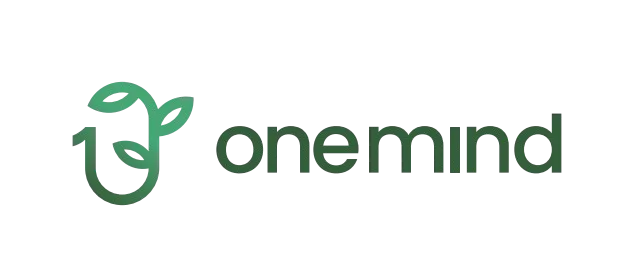Your Space
Transparent Healing.
When therapy, meds, and mindfulness aren’t enough, we help you break through—fast, safe, proven.
Blog

Does Ketamine Therapy Get You High?
Ketamine therapy is gaining attention for its potential role in treating mental health conditions such as major depressive disorder, post-traumatic stress disorder (PTSD), and anxiety. With increased interest in ketamine therapy, especially through clinics like One Mind Wellness & Ketamine, many are asking: does ketamine therapy get you high?
This article explores what ketamine is, how ketamine therapy works, and whether the ketamine experience involves a "high". We also examine the effects of ketamine, its clinical use in low doses, and how it's being administered in therapy settings to treat depression and other disorders.
What Is Ketamine and How Does Ketamine Work?
Ketamine is a dissociative anesthetic that has been used in medicine for decades, originally as an anesthetic agent for surgery. It works by blocking NMDA receptors in the brain, leading to a surge in glutamate, which is believed to help form new synaptic connections. This activity is what makes ketamine effective in treating resistant forms of depression and other psychiatric conditions.
Ketamine has shown promise for patients with treatment-resistant depression, as traditional antidepressants often take weeks to work, while ketamine can provide relief within hours.
Does Ketamine Therapy Get You High?
The Therapeutic vs Recreational Ketamine Experience
The experience during ketamine therapy is vastly different from recreational ketamine use. Recreational ketamine, often taken in high doses, is known for inducing euphoria, hallucinations, and intense dissociation. In contrast, ketamine therapy uses low doses administered in a controlled clinical setting, either through IV ketamine infusions or ketamine nasal spray.
Patients undergoing ketamine therapy often report a feeling of detachment or altered perception, known as a dissociative effect, but this is not typically described as a "high". These mild dissociative effects of ketamine can help patients process emotional trauma and engage in therapy with increased openness.
How Ketamine Therapy Is Administered
Ketamine Infusion Therapy
Ketamine infusion therapy involves administering low doses of ketamine intravenously under the supervision of a healthcare provider. This approach allows for precision in dosing and close monitoring of side effects such as nausea, dizziness, or changes in blood pressure.
Esketamine Nasal Spray
Another form, esketamine (a derivative of ketamine), is approved by the FDA as a nasal spray. It is typically used in conjunction with oral antidepressants and is administered in a clinic due to its dissociative effects.
Dosing and Effects
The doses of ketamine used in therapy are much lower than those used recreationally. These low doses help reduce the potential risks of ketamine addiction or ketamine misuse. Patients may feel relaxed, introspective, or mildly disconnected during a therapy session, which can be helpful for treating depression and anxiety disorders.
Mental Health Benefits of Ketamine Therapy
Ketamine for Treatment-Resistant Depression
Ketamine has been used to provide rapid relief for patients who have not responded to other treatments. The medical use of ketamine in mental health care has shown benefits of ketamine therapy in clinical trials, especially for treatment-resistant depression.
Benefits Beyond Depression
Besides being a treatment for depression, ketamine therapy is being studied for its potential use in treating PTSD, chronic pain, and even some forms of substance abuse disorders. Doctors also use ketamine off-label to help manage anxiety and suicidal ideation.
Potential Risks and Side Effects of Ketamine
Side Effects of Ketamine Therapy
Like all medications, ketamine has side effects. Common side effects of ketamine include dizziness, nausea, confusion, and an increase in blood pressure. Patients with uncontrolled high blood pressure may not be suitable candidates for ketamine treatment.
Ketamine can cause dissociative effects, particularly at higher doses, and can sometimes lead to hallucinations or feelings of depersonalization. These negative side effects are typically short-lived when administered in controlled settings.
Ketamine Addiction and Misuse
There is a risk of recreational ketamine abuse and addiction, especially when taken outside a medical setting. Therapeutic ketamine experience is vastly different from uncontrolled use. Patients considering ketamine therapy should only receive ketamine under the guidance of trained professionals.
Comparing Therapeutic and Recreational Ketamine Use
Who Can Receive Ketamine Therapy?
Ketamine therapy may be appropriate for individuals diagnosed with major depressive disorder, PTSD, or chronic anxiety that has not responded to conventional treatments. Before undergoing ketamine therapy, patients are evaluated for health issues such as high blood pressure or other contraindications.
Clinics like One Mind Wellness & Ketamine provide initial assessments, monitor vital signs, and guide patients through the therapy session to reduce potential risks. Learn more about ketamine therapy for PTSD, anxiety disorders, and depression.
Localized Access and Professional Oversight
In locations across the United States, ketamine infusion therapy is becoming more available. Clinics such as One Mind Wellness & Ketamine in California prioritize patient safety and offer a clinical environment where therapy is supervised by healthcare professionals.
Considerations When Choosing Ketamine Therapy
Ketamine therapy involves more than medication, it often includes integration therapy or talk therapy to help patients process their experience.
Ketamine-assisted therapy may reduce symptoms in as little as 1-2 sessions but typically involves a structured treatment plan.
The approach to ketamine therapy varies, but the goal remains consistent: to reduce symptoms of depression and anxiety.
Frequently Asked Questions
Does ketamine therapy get you high?
Most patients do not describe the experience as a recreational "high". Ketamine can induce mild dissociative states, but under medical supervision, it feels more like a reset than intoxication.
Is ketamine therapy safe?
Ketamine therapy is generally safe when administered in clinical settings. Patients are monitored for ketamine side effects like blood pressure spikes or dizziness.
What does ketamine feel like during therapy?
Some report floating sensations or a shift in perception. The ketamine experience can help patients reflect on emotions and reduce mental distress.
Can ketamine be addictive?
Recreational ketamine abuse exists, but therapeutic use in clinics with low doses carries a much lower risk. It is crucial to avoid using compounded ketamine products without oversight.
Who should not receive ketamine?
Those with uncontrolled high blood pressure or a history of psychosis may not be suitable candidates.
Final Thoughts
Whether ketamine therapy gets you high depends on your expectations and the setting. Recreational ketamine use and ketamine therapy are not the same. Clinical ketamine therapy is used to help treat depression, PTSD, and other mental health conditions, not to produce euphoria.
Patients considering ketamine therapy should do so with professional guidance. The controlled use of low doses of ketamine can provide relief from depression and anxiety, especially in cases where traditional treatments have failed.
Visit One Mind Wellness & Ketamine to learn how ketamine therapy is used to manage chronic pain, anxiety, and more. For additional background on ketamine's chemical properties, see the NIH PubChem entry.
This content is based on information relevant to medical ketamine therapy and aligns with clinical guidelines from psychiatry and neuroscience research.
COMPANY
CUSTOMER CARE
LEGAL
Copyright 2025, One Mind | All Rights Reserved.
Powered by WebPanda

